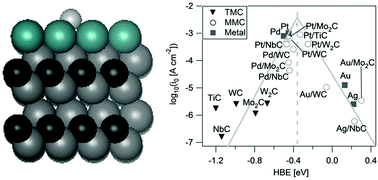Reactions of water and C1 molecules on carbide and metal-modified carbide surfaces
Abstract
The formation of carbides can significantly modify the physical and chemical properties of the parent metals. In the current review, we summarize the general trends in the reactions of water and C1 molecules over transition metal carbide (TMC) and metal-modified TMC surfaces and thin films. Although the primary focus of the current review is on the theoretical and experimental studies of reactions of C1 molecules (CO, CO2, CH3OH, etc.), the reactions of water will also be reviewed because water plays an important role in many of the C1 transformation reactions. This review is organized by discussing separately thermal reactions and electrochemical reactions, which provides insights into the application of TMCs in heterogeneous catalysis and electrocatalysis, respectively. In thermal reactions, we discuss the thermal decomposition of water and methanol, as well as the reactions of CO and CO2 over TMC surfaces. In electrochemical reactions, we summarize recent studies in the hydrogen evolution reaction, electrooxidation of methanol and CO, and electroreduction of CO2. Finally, future research opportunities and challenges associated with using TMCs as catalysts and electrocatalysts are also discussed.

- This article is part of the themed collection: Fundamental insights into interfacial catalysis


 Please wait while we load your content...
Please wait while we load your content...